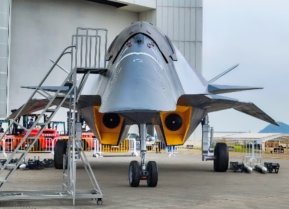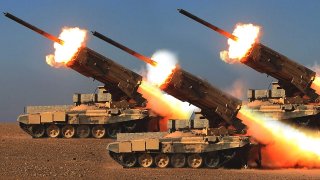What Putin Wants from the Ukraine Conflict
If the West wants to change Putin’s calculus, it must demonstrate that it is not going to purchase another period of comfort for itself at Ukraine’s expense. Instead, it should make Moscow understand that the name of the game is anything but Western surrender.
In recent months, the discussion on whether the time has come to stop or at least freeze the war in Ukraine has visibly intensified. When contemplating various scenarios of how this could be done, pundits in both the United States and Europe focus on security guarantees and economic assistance that should be provided to Ukraine or on leverages the West could apply to persuade Kyiv to agree to an inescapably painful would-be agreement.
A lot less attention is paid to possible trade-offs that could be demanded from or negotiated with Moscow. It seems that Western diplomats and analysts, sensing the war fatigue in their respective societies, presume that a similar sentiment exists in Russia, or rather, in the Russian leadership.
To think so would be a mistake. The moment to assume that the Kremlin might be ready to seek a peace deal, if it has ever existed, has long since passed. At this point, Vladimir Putin looks confident that time is on his side. His calculus can, of course, still prove to be wrong, but for now, this is the basis for his decisions.
There are two fundamental sets of arguments that likely drive Putin’s thinking.
The first one is that Russia has preserved, and in some areas even increased, its capacity to wage war, including a war of attrition. In the autumn of 2023, Russian troops seized the initiative and currently are advancing. True, casualties are significant. But this is no novelty: this is how both the imperial and the Soviet armies fought for centuries.
Russia has maintained the necessary numbers of manpower, and Western economic sanctions have had a very limited impact on the Russian economy. Again, Russia’s resources are not endless, but for the time being, the Kremlin has enough money to finance the war, to pay salaries to soldiers or compensations to their families in case of a soldier’s death, and to make sure the defense industry will be able to function.
Russia’s budget deficit at war is smaller than that of many Western countries at peace.
Inside Russia, only a minority opposes the war. For the majority, it is extremely difficult to abandon their positive attitudes. It is worth reminding that 86 percent of Russian citizens welcomed the annexation of Crimea in 2014. Whereas support for the full-scale war against Ukraine has been lower, people are unwilling to accept the loss of the Crimean Peninsula. The “rally-around-the-flag” effect played a role in Putin’s reelection as president in March 2024.
Last but not least, Russia does not feel internationally isolated. It engages with the so-called “Global South,” with China playing the leading part in enabling Russia to continue the war. Countries like Iran and North Korea have become important suppliers of weapons, ammunition, and, in the latter case, also manpower.
The second line of argumentation is that Putin needs to achieve an unquestionable victory not only over Ukraine but, by extension, also over the West.
Otherwise, when Russia’s national consolidation weakens after the war ends and the economy slows down without the war stimulus, it will be a challenge to keep the Russian citizens convinced that the endeavor was worth the effort.
However, this is the secondary motivation. The most important result has nothing to do with domestic politics. Throughout his long stay in power, Putin has aspired to replay the end of the Cold War. Ukraine’s defeat on the battlefield and the failure of its Western partners to prevent this would no doubt allow Moscow to claim that the mission has been accomplished.
There are four components that the Kremlin wants to secure, namely:
1) Western recognition of Russia’s territorial expansion, including Crimea.
2) Economic sanctions against Russia should be lifted.
3) Frozen assets should be returned.
4) A de facto Russian veto on major issues of European security, such as NATO enlargement.
Putin’s power instincts have been trained for decades. Once he feels that his opponents are weak, he increases the pressure. If he consolidates the gains in Ukraine, he will likely try his luck elsewhere. It will not necessarily be NATO countries as an open war with NATO will still involve huge risks for Russia.
The Kremlin’s next steps may be the annexation of Belarus and bringing Moldova, by military or other methods, back into the exclusive Russian sphere of influence, which would make the rump state of Ukraine much more vulnerable during the looming next round of hostilities.
If the West wants to change Putin’s calculus, it must demonstrate that it is not going to purchase another period of comfort for itself at Ukraine’s expense. Instead, it should make Moscow understand that the name of the game is anything but Western surrender.
About the Author
Arkady Moshes is the Program Director of the Research Program on Russia, EU’s Eastern Neighbourhood, and Eurasia at the Finnish Institute of International Affairs in Helsinki, Finland.
Image Credit: Creative Commons and/or Shutterstock.


